BATTLEGROUND ANTARCTICA
‘Hands OFF Antarctica!’ Activists condemn SA arrival of Russia’s noisy oil and gas ship
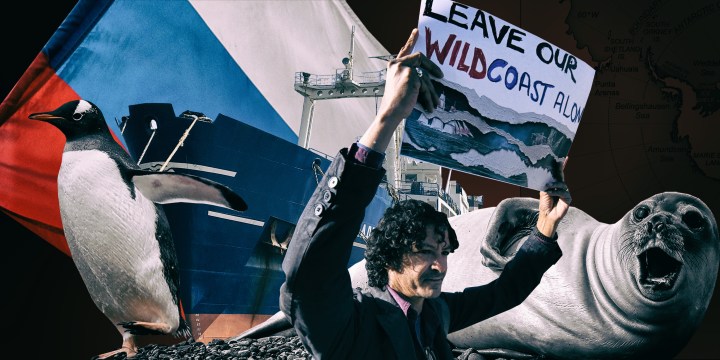
As Russian Foreign Minister Sergey Lavrov visits South Africa, a chorus of local and international campaigners have vowed to protest against the planned Cape Town arrival of the Kremlin’s Antarctic seismic ship, the Akademik Alexander Karpinsky. Despite a mining ban, the ship has built vast oil and gas maps of the climate-stressed Southern Ocean. Its airguns — and noise from other ships — may be deafening, stressing out and even killing unique species in a globally important marine sanctuary.
Just days after a controversial meeting between Russian Foreign Minister Sergey Lavrov and his South African counterpart, Naledi Pandor, in Pretoria on Monday, a Kremlin ship linked to rowdy Antarctic prospecting was set to growl into town.
According to ship tracker Marine Traffic, the blue and white-hulled Akademik Alexander Karpinsky will dock in the unmistakable shadow of Table Mountain on Thursday, January 26.
An Our Burning Planet investigative series shows that the Karpinsky and her seismic airguns have fired shots throughout Antarctica’s warming Southern Ocean for hydrocarbons, the building blocks for oil and gas.
These annual activities have been enabled by Cape Town port facilities ever since an international mining ban, included in Antarctica’s Protocol on Environmental Protection, became law in 1998. This allows scientific research — but not any stages of prospecting linked to commercial intent, Antarctic governance experts argue.
As defined by a controversial 1988 Antarctic mining pact — abandoned after public protests — “prospecting” aims to identify “areas of mineral resource potential for possible exploration and development”.
Thus, argues the University of Canterbury’s Professor Alan Hemmings, Antarctic prospecting is a mineral resource activity outlawed by the mining ban, because it forbids “any activity relating to mineral resources, excluding scientific research”. The New Zealand-based governance specialist, an observer of the 1990s ban negotiations, notes: “Parties had earlier agreed that prospecting was the first of three stages of mineral resource activities — and quite separate from scientific research activities.”
The mining ban “does not prohibit research activity into oil and gas”, such as critical new understanding into how storms release atmosphere-heating gases, says Australian National University’s Donald Rothwell — but the prominent polar law professor also notes that commercial prospecting for mineral resources would be widely considered in breach of the ban.
And the early stages of commercially weighted seabed prospecting — associated with compressed air blasts that may harm marine life — appear to be exactly what the Kremlin has pursued.
The Karpinsky is owned by the Polar Marine Geosurvey Expedition (PMGE), a subsidiary of the Kremlin’s mineral explorer, Rosgeo, which — together with other Russian state actors — claims in multiple official sources there are 500 billion barrels of oil and gas buried in the Antarctic seabed. The sources do not say how much of this is deemed recoverable from the stormy and difficult-to-mine region, which accounts for 50% of global ocean warming since 2005.
In the early 2023 summer, the Karpinsky was set to visit East Antarctic waters yet again for “marine geological-geophysical studies”, according to the PMGE’s recent annual report. The subsidiary’s research goals are “decreed” by the Kremlin and include “the creation of an information base for the assessment and scientific forecast of the mineral raw-material potential of the Antarctic”, it notes.
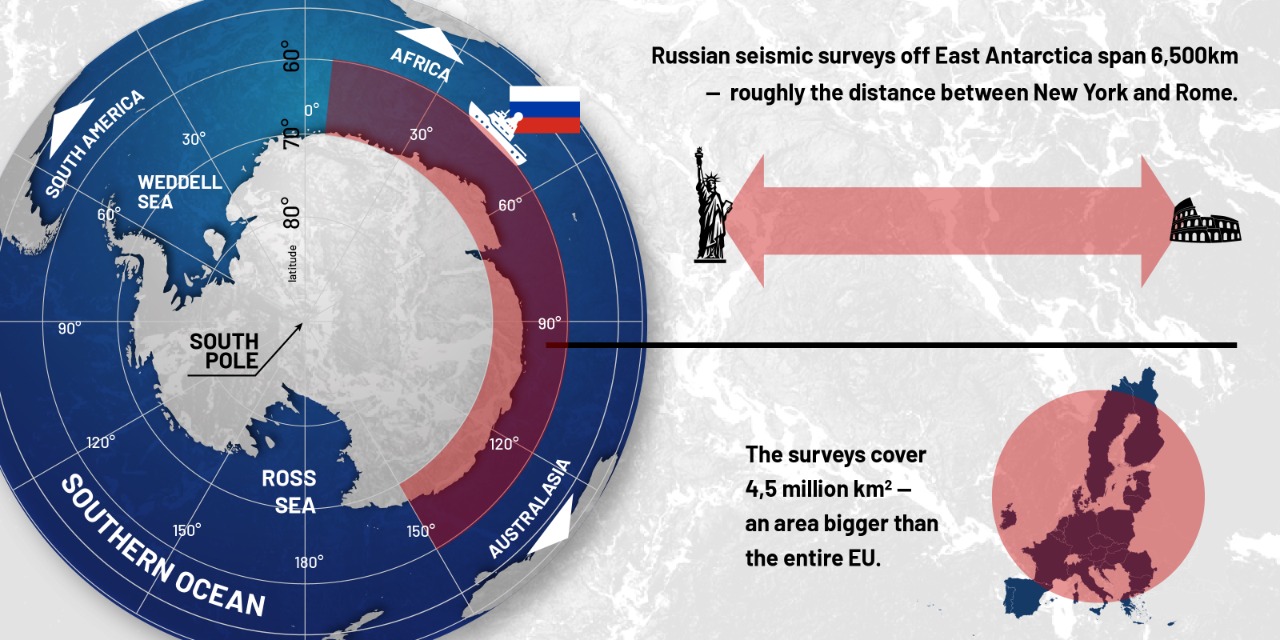
The vast extent of Russian oil and gas seismic surveys in Earth’s last unmined frontier since Antarctica’s 1998 mining ban entered into force. (Graphic: Righard Kapp/Daily Maverick)
Rosgeo has repeatedly told us in detailed replies that its Antarctic work was simply standard geology allowed by the mining ban.
The Karpinsky, controversially, is not the only Russian lady of the sea with a taste for South African shores. The South African military has also announced its plans to cavort with the Chinese and Russian navies on the first anniversary of Russia’s brutal invasion of sovereign Ukraine territory on February 24 last year.
In December, the US-sanctioned Lady R, a Russian cargo vessel, docked at Cape Town’s Simon’s Town naval base — reportedly in the dead of night to offload possible arms.
‘Hands OFF Antarctica!’
The Ukrainian Association of South Africa has criticised the Karpinsky’s repeated visits to Cape Town, where Ukraine’s polar research vessel, the Noosfera, has sought refuge during the war. The association has said the Karpinsky’s activities flout the cornerstones of the Antarctic Treaty System (ATS) — the framework of 29 decision-maker and 26 observer states that devotes Antarctica to scientific and peaceful use. South Africa is the only African country with decision-maker status.
Accusing Russia of weaponising hydrocarbons “as part of its military aggression against neighbouring states”, the association has called “on all South African environmental organisations to protest against the docking of the Karpinsky ship in Cape Town”.
The Cape Town branch of Extinction Rebellion (XR) says it is planning to do just that, along with other groups such as Greenpeace volunteers, on January 26.
“XR Cape Town opposes any country searching for fossil fuel reserves in Antarctica; investigation technologies are damaging to the sensitive Antarctic environment and any confirmed discovery could lead to a dangerous race among countries to appropriate areas of the Antarctic to extract fossil fuels. This would be catastrophic for climate change, biodiversity and geopolitical stability,” the group cautions in a statement, sent to Our Burning Planet.
“Given that this ship has the technological equipment to explore for fossil fuels in the Antarctic, XR Cape Town demands that the port authorities establish the moral, legal and scientific basis for the Akademik Alexander Karpinsky’s current expedition to the Antarctic,” the group says, adding that it plans to be “at the V&A Waterfront to draw public attention to the arrival of the Russian ship”.
The group also “calls on the South African government to refuse permission to any ship from any country to berth in South African ports en route to the Antarctic, unless it can present proof to port authorities that it is engaged in bona fide scientific research as defined by Antarctic treaties, and that it has neither the intention nor the technologies to prospect for fossil fuel reserves”.
Extinction Rebellion has also circulated an online notice calling for protests against the Karpinsky’s use of Cape Town ports.
“Hands OFF Antarctica!” the notice says. “No more seismic blasting, no mining, no oil and gas exploration.”
The group says it also “supports” an academic peer-reviewed “proposal” that “states should explicitly unilaterally commit now to never commence hydrocarbon extraction in Antarctica”.
Co-authored by Dr Patrick Flamm, of the Peace Research Institute Frankfurt, and Hemmings, the University of Canterbury governance specialist, that academic proposal has also sparked an ongoing online public petition for a “forever ban”.
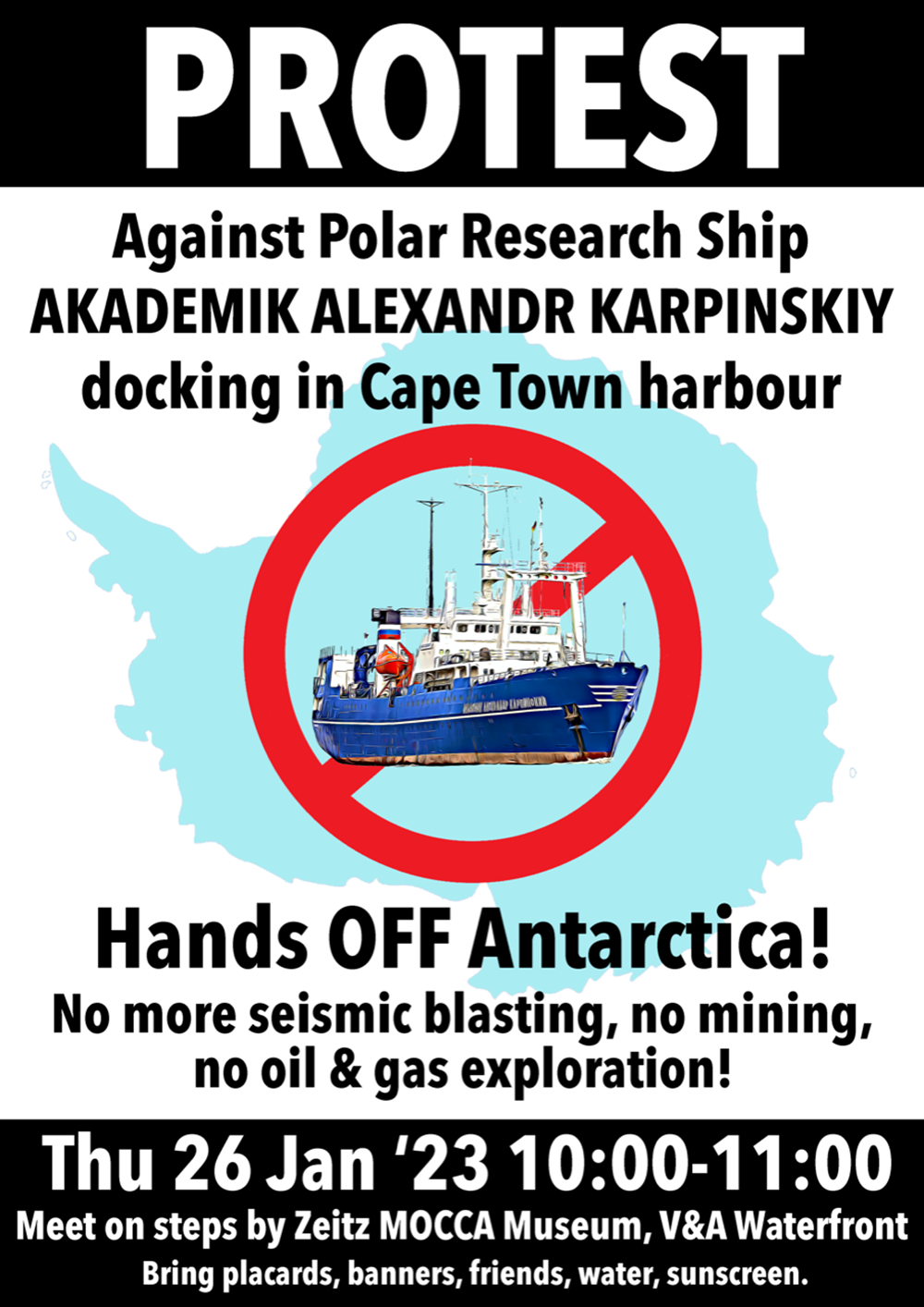
The non-profit group Extinction Rebellion and other anti-seismic campaigners have called for protests against the Akademik Alexander Karpinsky’s scheduled arrival in Cape Town on 26 January 26. (Image: Supplied by Extinction Rebellion)
The Antarctic and Southern Ocean Coalition (Asoc), the ATS non-profit environmental observers, tabled its own call for an unmodifiable mining ban after Our Burning Planet published its original investigative series in October 2021. The Asoc call was put forward at last year’s annual meeting of ATS states in Berlin.
The current ban does not expire, but it can be modified from 2048 should just one ATS member state call for it.
Visit Daily Maverick’s home page for more news, analysis and investigations
‘We stopped Shell, now we must stand up for Antarctica’
South African campaigners told Our Burning Planet that the national government has a “special responsibility” to protect marine mammal corridors connecting the country’s waters to the Southern Ocean.
In winter and early summer, for instance, South African waters provide mating, calving and nursing grounds for humpback, southern right and critically endangered blue whales migrating from Antarctica.
“South Africans have a special responsibility to protect sound-sensitive creatures of unique Antarctic ecosystems from being harmed by incredibly loud, incessant noise from the underwater airguns used in seismic surveys,” says Cormac Cullinan, a rights-of-nature lawyer who helped secure last year’s landmark coalition victory against Shell’s now-suspended seismic surveys off South Africa’s Wild Coast — home to the annual sardine run.
If Antarctica had a voice in international affairs, it would surely argue strenuously these seismic surveys are not in its best interests. Mining is banned in Antarctica and states should not be permitted to conduct seismic surveys that harm so many marine species, just so they can build a case to justify future mining.
Cullinan is now also a lead campaigner behind the Declaration for the Rights of Antarctica, a civil society initiative that says it seeks to complement the ATS by putting Earth jurisprudence at the heart of South Polar governance.
“Many states have laid claim to vast areas of Antarctica,” Cullinan says of South Africa’s southern neighbour. South Africa, with Russia, is also a co-founding signatory of the 1959 Antarctic Treaty, while Cape Town is one of just five official Antarctic gateway cities worldwide, he points out. “However, the international community does not recognise this enormous continent as the equivalent of a state, so its unique ecosystems and species are vulnerable to states who want to exploit it.
“If Antarctica had a voice in international affairs, it would surely argue strenuously these seismic surveys are not in its best interests,” Cullinan contends, suggesting that the region could one day be represented as a legal client in international courts. “Mining is banned in Antarctica and states should not be permitted to conduct seismic surveys that harm so many marine species, just so they can build a case to justify future mining.”
Cullinan, of the firm Cullinan & Associates, adds: “We stopped Shell’s seismic tests off the Wild Coast, now we must stand up for Antarctica.”
To safeguard ecosystem services used by fish and people, indigenous groups and campaigners with a track record of setting coast-to-coast precedents have launched ongoing, landmark battles against seismic explorers.
“The recent victory of communities against Shell in South Africa was a massive one — communities are already impacted severely by extreme weather phenomena in South Africa as we witness the turbulence in other countries across the globe,” says Pooven Moodley, executive director of Natural Justice, one of the non-profit groups that took Shell to court on behalf of indigenous communities.
The international human rights lawyer told Our Burning Planet that “news of the seismic surveys and exploration for oil and gas in Antarctica is deeply disturbing as this will accelerate the destruction of our planet.
“The work of the Russian seismic survey vessel and similar vessels will contribute to the further destruction of the ocean ecosystem. The Protocol on Environmental Protection as signed by the signatories to the Antarctic Treaty banned mining,” says Moodley.
“It is critical to ensure there are no breaches to this protocol,” he adds. “As several recent court judgments have ordered companies and governments to reduce emissions, the potential exploration for oil and gas in Antarctica would be the end game.”
For their part, a group of Cape Town-based Greenpeace volunteers said they shared concerns raised by Extinction Rebellion and “concerned South African citizens”.
“We call for sanity to prevail and urge the South African government to fulfil its moral duty towards Africa — which is the continent most vulnerable to climate change — and its future generations, by refusing port entry to the Akademik Alexander Karpinsky and all other vessels engaged in harmful exploration activities in the Antarctic region,” say the volunteers, adding they plan to join Waterfront protests.
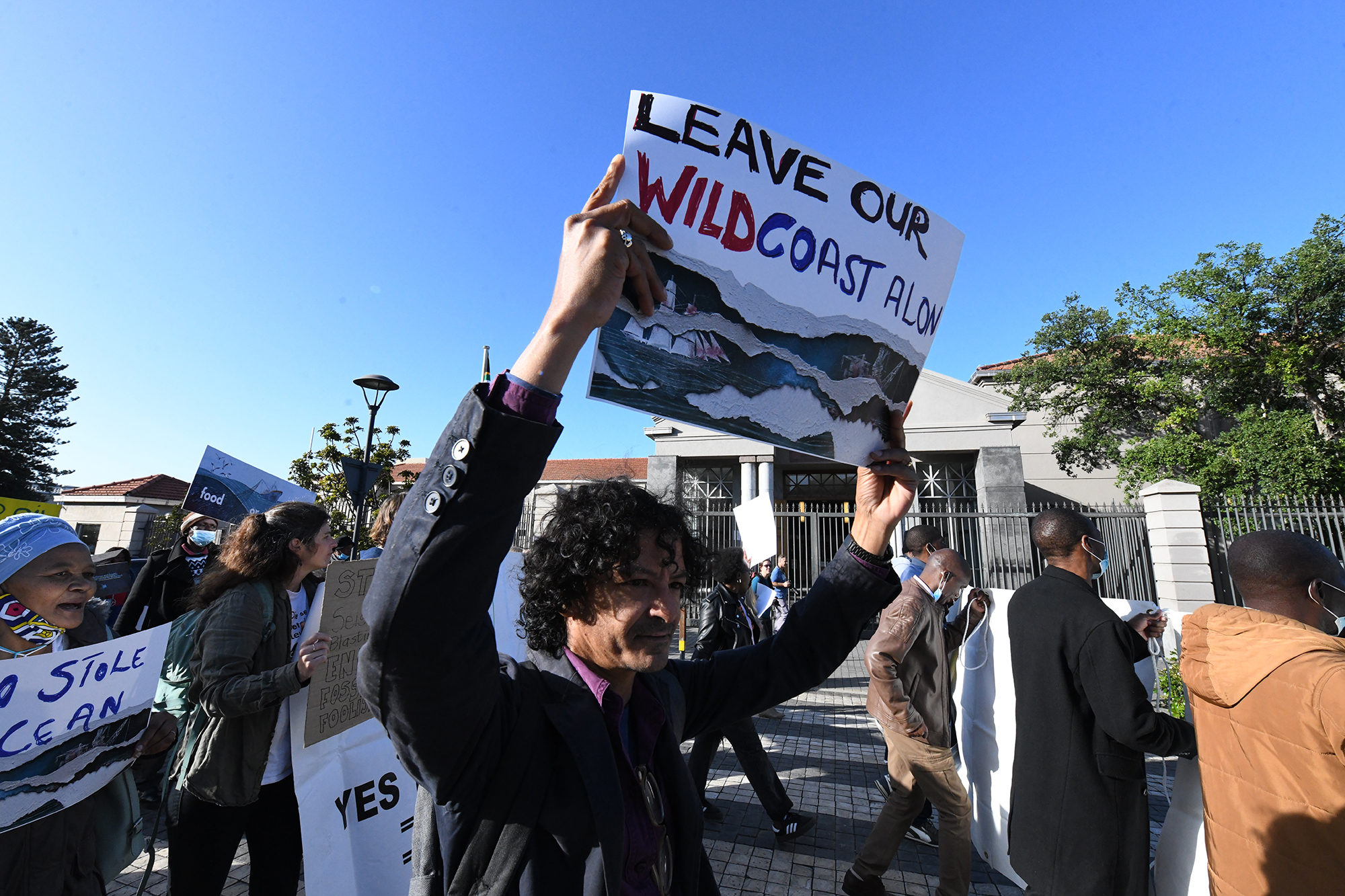
On 30 May 2022, protesters in Gqeberha, Eastern Cape, challenged Shell’s now-suspended Wild Coast seismic survey. (Photo: Gallo Images / Die Burger/ Lulama Zenzile)
Meanwhile, The Green Connection, a non-profit group spearheaded by the activist Liziwe McDaid, has vowed to appeal against Searcher Geodata’s renewed state approval for seismic oil and gas explorations along a reported 30,000 sq km sweep of Atlantic waters, off South Africa’s West Coast.
In 2017, McDaid joined forces with the grassroots activist Makoma Lekalakala — leading a Herculean coalition effort that thwarted South Africa’s $76-billion nuclear power deal with Russia.
“Every other industry that derives its income from the ocean is gravely concerned about the impacts of seismic testing on their livelihoods and the wellbeing of the creatures and ecosystems that live there,” says Mike Schlebach, managing director of Protect the West Coast. “There are just too many unknowns. We should be focusing all our collective energy and resources on moving away from oil and gas before it is too late and the planet dries up.”
Shell, in company communications, has insisted it is a responsible citizen of the Just Transition. Searcher Geodata did not respond to questions by the deadline.
Whales must also shout
Sound is how the inky ocean sees. And the low frequencies of airguns can also drown out whale song, forcing the world’s largest animals to raise the volume of their conversations — or “shout” — to hear each other.
As first reported by Our Burning Planet in December 2022, these findings are documented in a pioneering scientific review study on noise impacts across marine species in the Southern Ocean.
Whale song may try to fight the invaders — but these anthems of the deep die with a whimper when the seismic blasts drown out, or “mask”, low-frequency communication between the mammals.
Published in a policy-information portal managed by the Scientific Committee on Antarctic Research (Scar), the review study was led by Curtin University in Perth, and co-authored by universities and agencies in Australia and the US.
A similar but independent study — whose authors suggested that dolphins had to “shout” over noise — was published in the journal Current Biology this month.
‘Not a controllable source’
For Russell Leaper, a whale and underwater acoustics specialist with the International Fund for Animal Welfare, “some national research vessels are built to be very quiet”.
But he adds, airguns “are not a controllable source”.
So, while solutions like marine vibroseis arrays already exist, he says, airguns are “a bit like using the sound system from a large stadium for a concert in a village hall”.
“There is no question in my mind these seismic airgun surveys — regardless of use — cause considerable habitat degradation in the Antarctic, impacting many sensitive species from krill and fish to whales,” Dr Lindy Weilgart, a Canada-based marine biologist with Dalhousie University and the non-profit group OceanCare, told us.
In the 1990s, Weilgart blew the whistle on a $35-million, US military-backed project that aimed to study warming ocean temperatures by blasting noise across the Pacific.
“There are legitimate academic uses for seismic surveys, where they study plate tectonics of the ocean floor, earthquake potential”, and so on, says Weilgart, who in 2021 co-authored the first analysis on how noise from deep-sea mining might harm species.
But the bioacoustics expert also says her “argument has always been that marine life does not care what the survey is used for… loud is loud”.
Long-standing problem, ‘no breakthrough’
Our Burning Planet has previously established that potentially damaging noise in the Southern Ocean has been known to state officials of the Antarctic Treaty System since the late 1990s.
Documented impacts of Weilgart’s work — communicated to the ATS back at a 2003 annual meeting — include miscarriages, injury, disease, vulnerability to predation, changes in appetite, disrupted mother-calf bonds, panic, anxiety and confusion. The same meeting learnt that scientists at Spain’s Canary Islands had found “internal haemorrhages” within a group of 10 dead beaked whales, apparently killed by noise.
Beaked whales, though shy, are thought to roam waters right around Antarctica.
Russia has led well in excess of 100,000km in seismic surveys in this ocean, ahead of Germany’s seismic research of at least 60,000km — as well as those of at least 13 other ATS member states for a variety of sciences. Collectively, this totals more than 360,000km of seismic blasts.
Dr Ricardo Roura of Asoc, the ATS non-profit environmental observers, recognises the German government — consistently the only ATS state to table noise at annual meetings — for “doing some important work”.
But he says there has been no precautionary “breakthrough” to safeguard marine life against the diverse, and sometimes poorly understood, ripple effects of noise.
Risks to marine life: ‘Similar’ at both poles
This week, fighting noise pollution at the opposite end of the planet, the Clean Arctic Alliance told Our Burning Planet it was in London at a subcommittee meeting of the International Maritime Organization (IMO) — a UN body.
For its lack of an indigenous population that can plead its case, the South Pole differs starkly from the people-rich North Pole, where communities depend on marine species that must also compete with human noise.
But the alliance’s lead adviser, Dr Sian Prior, says a potentially quieter Arctic also offers hope for its southern cousin, Antarctica — where Russia and China have blocked marine parks six years in a row.
Those parks, or marine protected areas, are under renewed discussion at an upcoming ATS meeting this year.
“Ideally, global measures should be developed to prevent confusing piecemeal approaches and ensure consistency of regulation, thus also maintaining level playing fields,” says Prior, whose alliance represents 20 non-profit organisations active in North Pole regions.
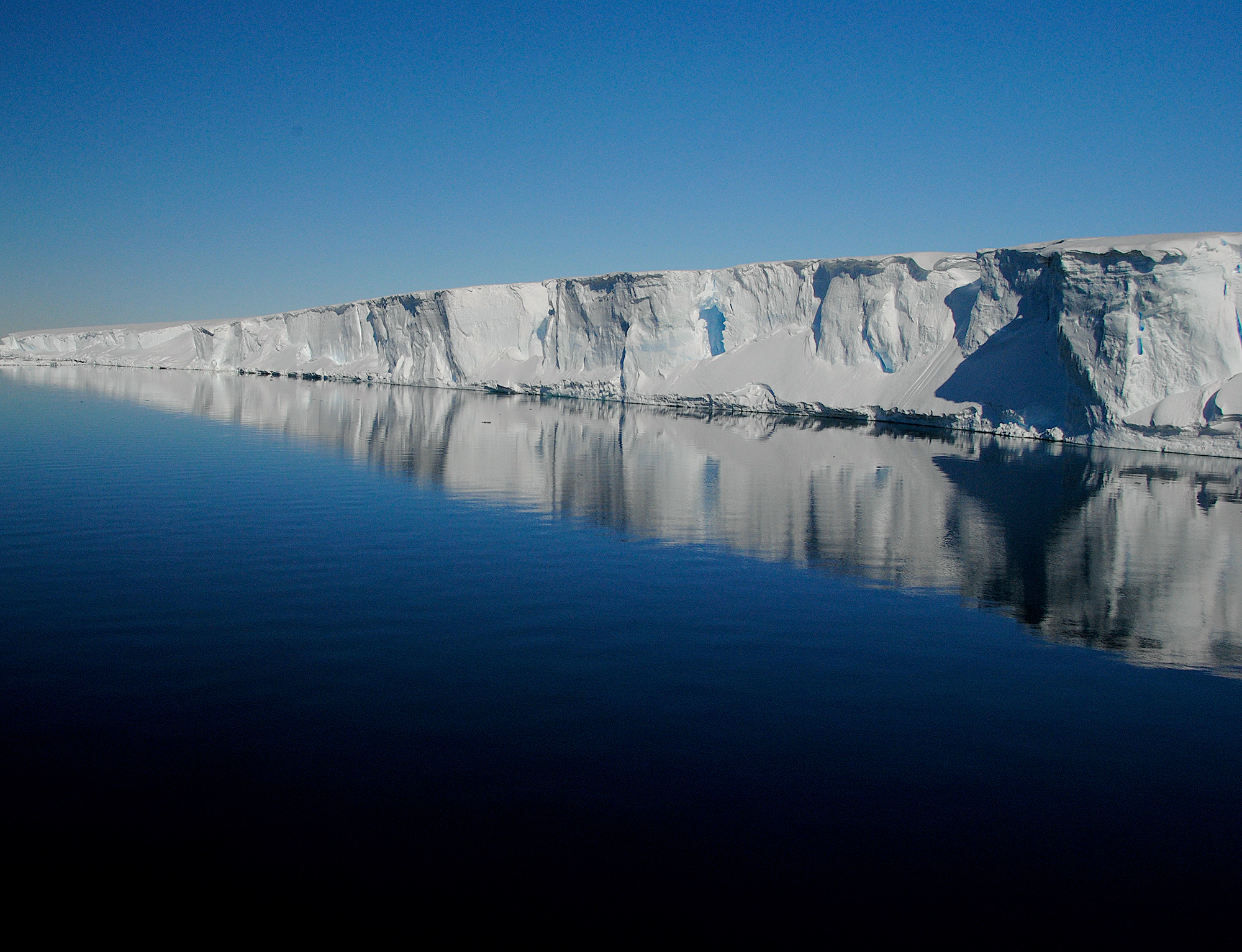
The waters off the increasingly unstable East Antarctic ice shelf, where Russia’s mineral explorer Rosgeo says it plans to look for hydrocarbons, the building blocks for oil and gas, in the current Antarctic summer. (Photo: Tiara Walters)
“We are hoping, with the introduction of underwater noise thresholds in European waters, that there will be wide support for mandatory measures,” says Prior, who flags non-binding action as a key barrier to uptake by the shipping industry. “The risks to marine wildlife will be similar in both polar regions.”
Despite growing concerns about marine noise from pole to pole, South African, the ATS’s Committee for Environmental Protection and other national polar authorities are yet to respond to repeated sets of questions sent by Our Burning Planet since October 2021.
But CCAMLR — the ATS fisheries body tasked with conserving the Southern Ocean’s “marine living resources” — acknowledged in its own detailed response that “the issue” of human-caused noise effects on marine life “is complex”. The piercing echosounders of fishing vessels, for instance, were not as well understood as seismic impacts, the body claimed. It emphasised that strictly permitted activities were approved in line with its conservation standards.
Scientists have flagged the propellers and rumbling engines of ship-based Antarctic tourism as another significant noise source, but the International Association of Antarctica Tour Operators (Iaato) insists it already has tools “to support environmentally responsible travel”.
This season, Antarctic tourists were projected to surge above a record-breaking 100,000 visitors. The association says it is up to individual ATS member states to cap numbers. DM/OBP

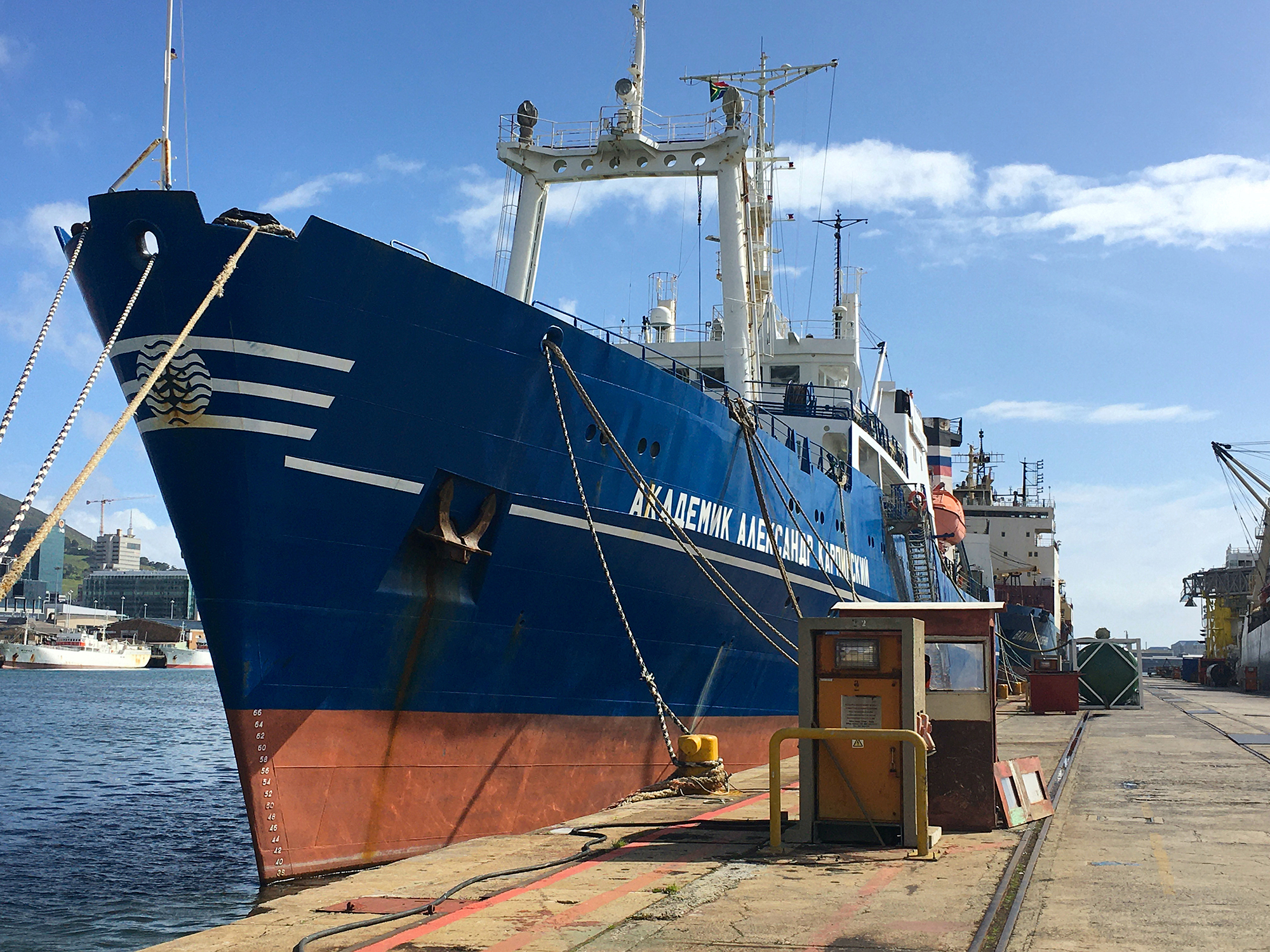










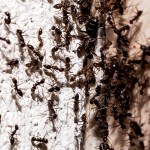









 Become an Insider
Become an Insider
Evil prospers when good men do nothing!!!Too many good men doing nothing,or more evil people than we dare to wish?These people only have faith in profit,evil exploiters of the only earth we have.